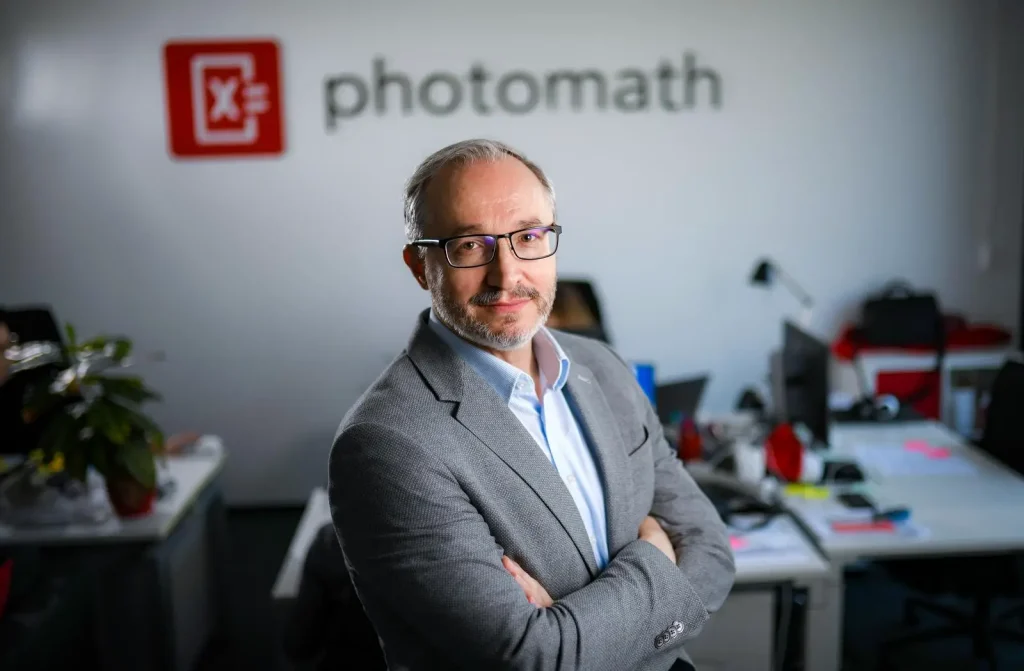As Josipa Ban/Poslovni Dnevnik writes, Google is buying the genius Croatian Photomath, a company founded back in 2016 by Damir Sabol, which developed an application that solves maths problems. The transaction still needs to be approved by the European regulatory authority for the protection of market competition, and the decision should be made by March the 28th, 2023.
Damir Sabol, founder and director of the Croatian Photomath company, confirmed the transaction recently. “That’s right, we’ve signed an acquisition agreement with Google, but it’s subject to regulatory approval. Unfortunately, I can’t say anything more until the decision of the regulatory body is known,” Sabol said at the time.
Confirmation of the takeover agreement was also given to Reuters by a Google spokesperson, pointing out that they concluded the takeover agreement with Photomath back in May 2022, but he also warned that it remains subject to regulatory review.
He also added that the Croatian Photomath’s technology will help Google provide a better mathematics learning experience and expand its overall offer among its young users. Currently, the biggest rival to Photomath on the American market is Microsoft’s application for solving mathematical problems.
If the acquisition is approved by the European regulatory body, which is taking an increasingly tough stance on the tech giants, Google would gain a significant advantage over Microsoft. The procedure is such that the transaction, as Reuters explained, is currently in a preliminary audit. If the European Commission recognises a violation of market competition in the acquisition, it can open an investigation, which would last four months. If this doesn’t happen, the transaction will probably be approved at the end of March as stated above.
If the transaction is approved, it will probably be the biggest acquisition of a Croatian startup, probably even bigger than that of Nanobit, which the Swedish Stillfront bought in 2020 for 148 million US dollars. Sabol has otherwise been tight lipped about why he decided to sell the company whose application has been downloaded more than 300 million times in six years in the first place.
The investment of two years ago in the amount of 23 million dollars also speaks of the potential of the Croatian Photomath. Menlo Ventures invested in Sabol’s company with the participation of GSV Ventures, Learn Capital, Cherubic Ventures and Goodwater Capital, and the money was invested in increasing the number of employees, investing in the development of artificial intelligence and machine learning, and scaling product development and marketing.
To date, a total of 29 million dollars has been invested in Photomath, and these investments were accompanied by good business results, as Photomath has recorded continuous growth for the past five years. The revenues of the company, the application of which uses a smartphone camera to recognise and solve maths problems, grew 622 percent from 2017 to 2021, from 810,000 to 5.85 million euros. In the same period, profit grew by 557 percent, from 65,000 to 432,000 euros, according to data from the business service Poslovna Hrvatska/Business Croatia. The number of employees increased from 16 to an impressive 91.
The fact remains that Sabol succeeds in successfully developing, but also successfully selling the companies to which he dedicates himself. This was also the case with Iskon, one of the first Croatian companies that provided Internet services, which he founded just after graduating from college, at the age of 26. In the end, Iskon was sold to Hrvatski Telekom/Croatian Telecom for 100 million kuna (13.2 million euros), which was the most successful sale of a domestic startup ever back at the time.
With the Croatian Photomath company, Sabol could quite easily repeat this scenario, that is, once again realise one of the largest financial transactions on the domestic technology scene ever. His successes are a reflection of the philosophy he lives by. In a big interview that he gave to Poslovni dnevnik back in 2015, he talked about how he walked to work in Iskon for the first three years.
“I didn’t have an official car. I leased 60 modems instead. In business, you can’t allow yourself to spend irrationally on personal needs, first of all, everything should be focused on the development of the company,” he said at the time.
After Iskon, he successfully developed the company Microblink, which deals with the development of mobile document scanners.
Photomath was created as its spin-off. At the end of 2020, Microblink received an investment from Silversmith Capital Partners in the amount of 60 million US dollars, with which the market evaluation of Microblink exceeded a massive 1 billion kuna. Not long after that sale, Sabol retired from the management position and today has an advisory role in that company as a co-owner. In addition to all of the above, the entrepreneur who was among the first on the market to recognise the importance of cameras on mobile phones and the opportunities that were to come of that, is also known as an investor.
Investing in STEMI, Marin Troselj’s School of the Future/Skola buducnosti, is just one example of an investment. FER’s Nuqleus programme was also included, in which it participates as part of the investment committee, and should help young startups with its advice. Another wildly successful business under Damir Sabol’s rule is therefore at a turning point, and what his role will be within Photomath if the European competition authority approves the transaction and the company ends up in the hands of the powerful Google, is yet to be learned.
For more, check out our dedicated business section.










